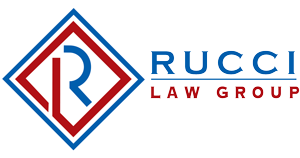By Kate Diehm
Our 2020 economy continues to bump along, and business as usual has been turned on its head. People in every industry and role have had to pivot and redefine how they deliver goods and services—including content creators, who find that some of their income channels have closed, at least for now.
So what’s a content developer or creative to do? In some cases, they’re turning to enforcing their intellectual property rights with greater intention and taking action. Since copyright law includes statutory damages, proven copyright infringement can be an easy way for content creators to increase their income. In fact, we’ve seen an uptick in cease and desist letters sent to businesses alleging copyright infringement.
With digital information-sharing and social media muddying the waters, it can be difficult to recognize copyright infringement when you see it. Simply stated, it is the use of a third party’s intellectual property by a person or a business—including their written work, fine artwork, or, most commonly in the age of the internet, photographs. Just because something is available online, and technology makes it easy to copy and paste, does not mean those written or visual assets are legally available to use.
The bottom line: If you are using images or verbiage copied off of the internet without asking for permission or paying for a license, you may be guilty of copyright infringement. This is especially the case if you are using these assets to promote your business, whether in print or digitally. Your business can be liable for damages even if one of your employees or contractors copied the image.
Here are some guidelines to keep in mind to make sure you’re on the right side of the law in your public communication:
- Only use images that you have the right to use in your marketing materials. These could include images that you create yourself, images that you hire a photographer to create for you, or images that you license, such as those from a stock photo website.
- Keep records proving where your content comes from, including copies of your agreements with photographers—especially those that note any restrictions on the use of the photographs they create for you—and copies of license agreements for any images you purchase rights to use.
- Remember that the copyright rules apply to more than just pictures; video is also subject to copyright, as is written content. Make sure you are not copying and pasting written content from other places to use in your marketing materials.
Copyright infringement can carry hefty statutory penalties, so it’s a good idea to share these guidelines with your business associates and employees, to keep your practices legal and your business protected through this unprecedented time.
For more information about business law, please contact Kate Diehm at [email protected] or 203-202-9686 ext 205.
